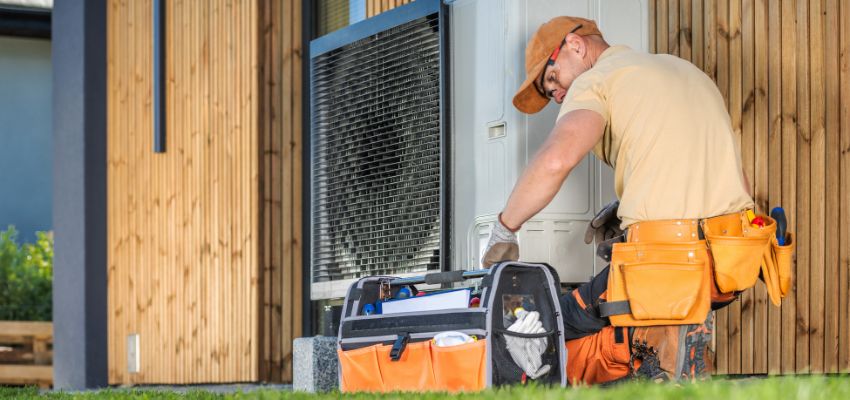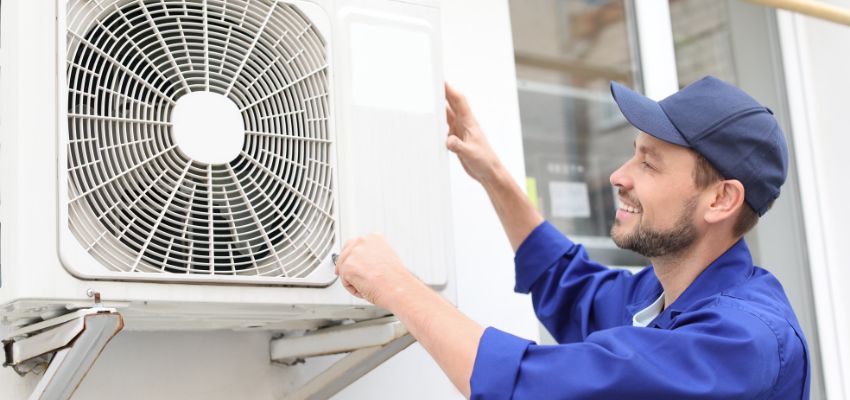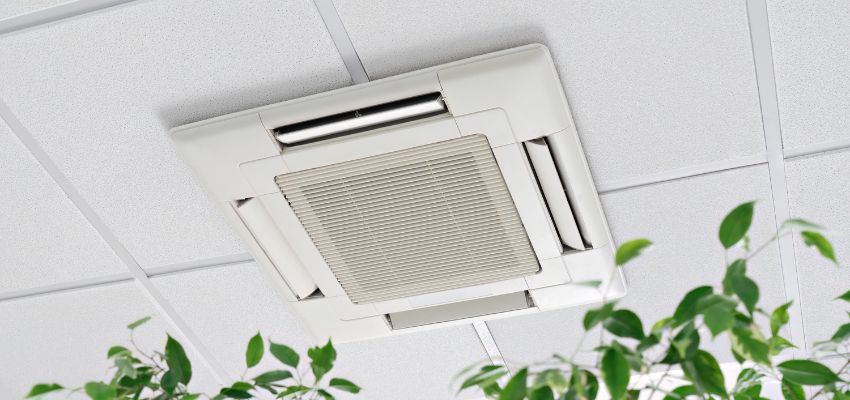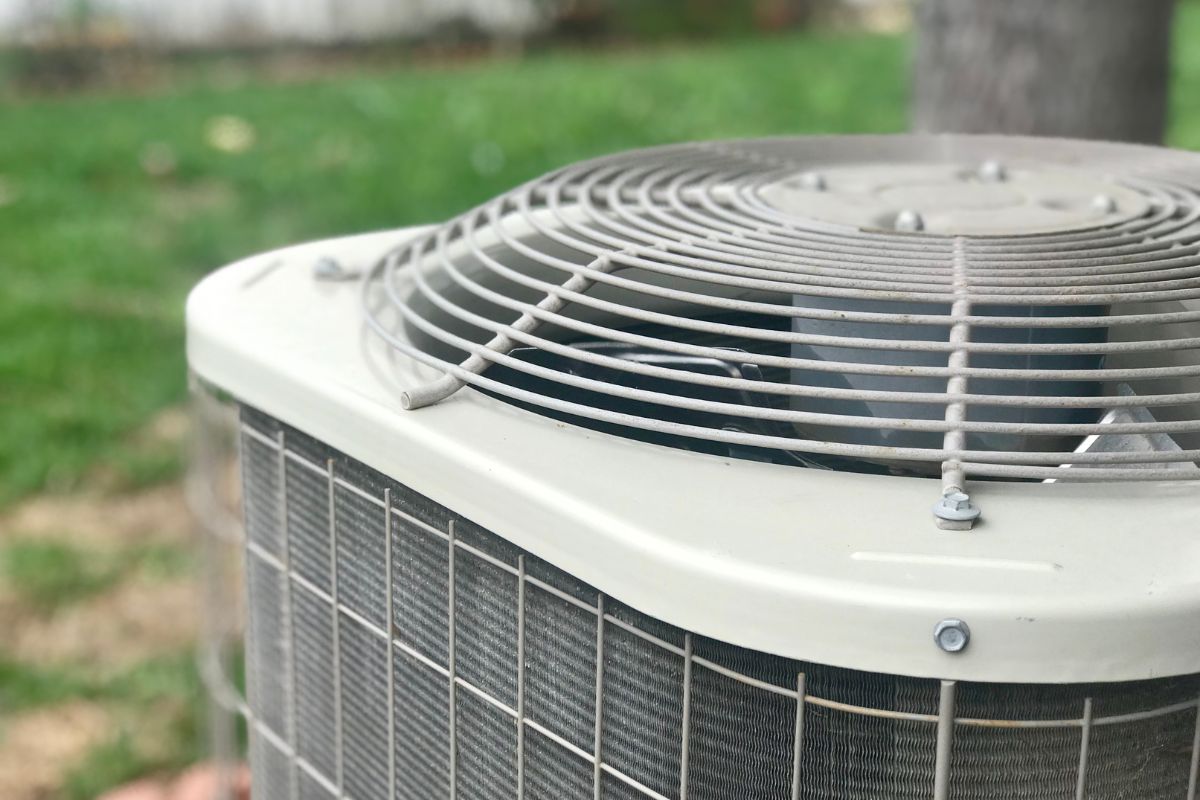Are you tired of fluctuating temperatures at home? Choosing the right system to regulate your indoor climate is essential. Two main options stand out: heat pumps and central air conditioning. Each has its unique benefits, so it’s important to understand how they work and what they offer. Making the right choice can mean the difference between a cozy haven and a frustrating atmosphere.
In this article, we’ll examine the heat pump vs air conditioner debate, examining their fundamental differences, benefits, and ideal use cases.
What Is A Heat Pump?
A heat pump system, often called a split system, includes an indoor air handler and an external accessory connected by refrigerant lines. Key components include a compressor, condenser, and evaporator coils. There’s also a reversing valve and thermostatic expansion valves.
Heat strips provide supplemental warmth. In heating mode, the heat pump soaks the warmth from the outdoor air—even at temperatures as low as 30 degrees—and transfers it indoors. When the temperature drops further, auxiliary heating kicks in to enhance comfort.

Pros And Cons Of Heat Pumps
Heat pumps are becoming popular for heating and cooling. They’re an efficient solution. However, like any technology, they have their pros and cons.
Pros
- Energy source. Heat pumps use electricity, reducing dependence on fossil fuels like natural gas or propane. This shift promotes energy independence and lowers greenhouse gas emissions, supporting eco-friendly practices.
- Temperature distribution. Heat pumps’ main advantage is their ability to distribute temperature evenly throughout the home. Unlike some heating systems, heat pumps provide consistent air circulation, enhancing comfort.
- Dual functionality. Heat pumps provide both heating and cooling, providing dual functionality. This versatility simplifies maintenance. Homeowners can rely on a single unit for year-round climate control, eliminating the need for separate systems.
Cons
- Climate limitations. Heat pumps are effective in many areas. However, their performance can decline in regions with regular freezing temperatures. In these conditions, heating efficiency may drop, leading to discomfort during the coldest months.
- Electricity dependence. Relying solely on electricity can be a major issue during power outages. In areas with severe weather or unreliable power, homeowners must consider backup heating solutions. These alternatives help them feel comfortable when the power goes out.
- Lifespan considerations. Heat pumps typically have a briefer lifespan than traditional heating systems. While technology is improving their durability, homeowners should stay informed. Understanding maintenance needs is crucial.
What Is Central Air Conditioning?
Central air conditioning systems are specifically engineered to cool indoor environments. Like heat pumps, they use a split system. This system includes an outdoor compressor, condenser, and indoor evaporator coil. It cools and dehumidifies the air, significantly improving comfort in hot weather by reducing indoor humidity levels.

Pros And Cons Of Central Air Conditioning
Central air conditioning can help keep your home comfortable. However, before making a decision in the heat pump vs HVAC discourse, it’s best to think about the pros and cons and consider whether it’s the right choice for you.
Pros
- Central air conditioning systems are highly effective in cooling large spaces. They efficiently cool multiple rooms and ensure a consistent temperature throughout your home, making them perfect for larger spaces.
- Operates quietly and efficiently. Central air conditioning systems are quieter than noisy window units because their loud components are located outside your home. This design creates a more peaceful living environment while providing effective cooling.
- Enhances indoor air quality by filtering allergens. A well-maintained central air system has filters. These filters capture dust, pollen, and allergens, improving indoor air quality.
Cons
- It lacks heating capabilities, so pairing it with a furnace for winter is required. While central air conditioning is ideal for cooling, it doesn’t provide heating. Homeowners should invest in a separate heating system to ensure year-round comfort.
- Costly due to the need for both heating and cooling units. The initial installation of a central air conditioning system is a significant investment. Ongoing maintenance of air conditioning and heating units can increase long-term costs. Potential repairs can add to these expenses as well.
Heat Pump Vs Air Conditioner: Choosing The Right One
Many factors can affect your choice between a heat pump and central air conditioning. It’s essential to consider each factor carefully:
- Cost. Installation expenses can vary depending on the specific models and the complexity of the site. Generally, heat pumps are more expensive to install than traditional air conditioners. The long-term energy savings make it economical over time, providing both heating and cooling.
- Energy efficiency. Heat pumps are energy efficient, particularly in heating mode during mild winters. They provide significant cost savings when temperatures drop, their efficiency can suffer. This may result in increased energy consumption. When considering this, evaluating your local climate and energy costs is essential.
- Life expectancy. Heat pumps operate year-round, which leads to more wear and tear compared to seasonal air conditioners, which only work in warmer months. Consequently, heat pumps typically have a short lifespan, averaging 10 to 15 years. In contrast, air conditioners can last 15 to 20 years with proper maintenance.
Consider these factors to make the right choice in the heat pump vs AC debate. This will help align with your budget, energy efficiency needs, and climate conditions.

Finding Your Perfect Climate Control Solution
By now, you should have a better understanding of the heat pump vs air conditioner debate. Selecting between a heat pump and central air conditioning depends on your needs, climate, and budget. Heat pumps deliver heating and cooling, making them great for moderate climates. In contrast, central air conditioning effectively cools larger homes. When selecting the best system for your lifestyle, consider your local climate, energy costs, and personal preferences. Consult a professional to help you make the right choice.
